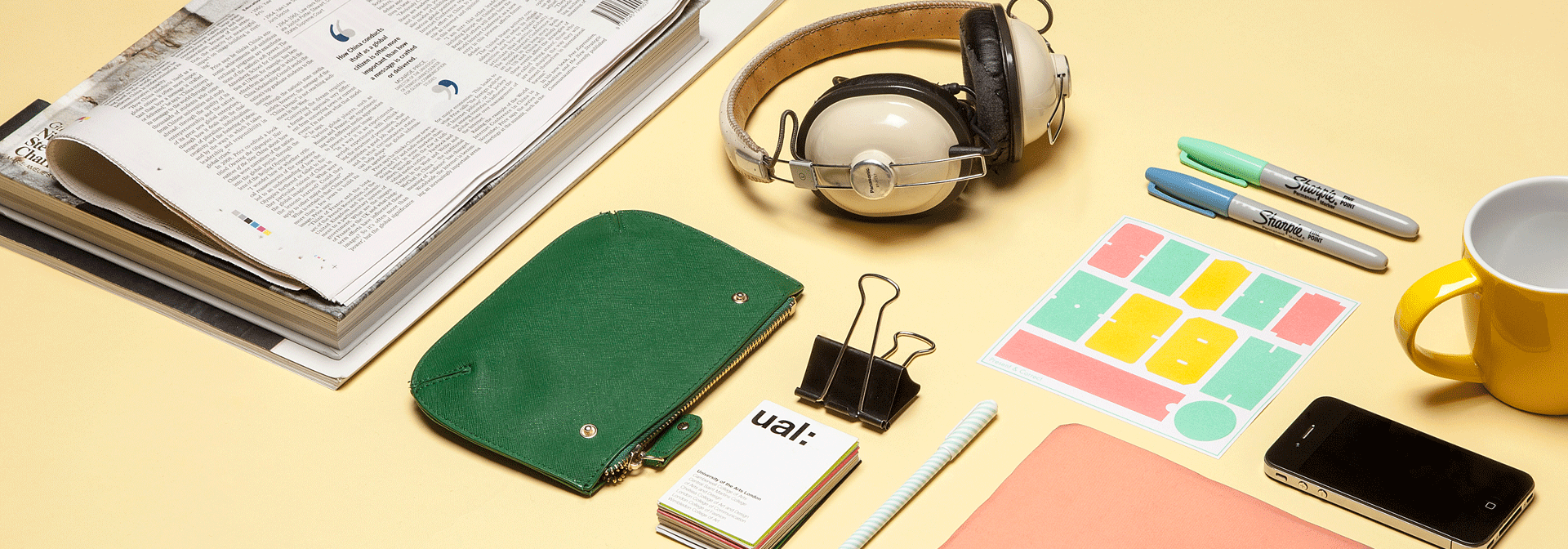Psychology and its benefits are known and studied globally. The ability to identify human behaviour, traits and history, then to replace them with different actions has improved the wellbeing of millions. But what is BSc Psychology of Fashion and why should you be interested in studying the link between garments and human feelings? We spoke to course leader Aurora Paillard and students Utkarsha Mehdiratta and Sydney Thompson to answer that question.

What is BSc Psychology of Fashion and why does it matter?
Applying psychology to fashion allows someone to enhance their mood through clothing and analyse aesthetic impulses. We asked Aurora how can psychology be applied to the everyday fashion world, she told us:
Psychology can be easily applied to the everyday world. For instance, you woke up this morning, had a shower, and maybe makeup. Why did you buy that cosmetics brand? Did putting on makeup make you feel better, more self-confident? Do you feel the need to put this makeup at work, university, or when you go on a date? All these questions can be answered with psychology. Applied Psychology in Fashion assesses a large panel of topics, using scientific and robust methodology. Fashion Psychologists study the impact of fashion (clothing, cosmetics, accessories) on wellbeing but also on performance, they also assess consumer behaviour (brand loyalty, consumer decision making, stores atmospherics, etc.), and they work towards ‘Inclusive Fashion’ (a fashion designed for and about everyone).
Psychology can be applied to almost every part of your day, but what’s a good example of someone using it within fashion? Aurora told us, “As Coco Chanel said once, ‘fashion is in the sky, in the street, fashion has to do with ideas, the ways we live, what is happening’ – well, psychology is, in this sense, interconnected with fashion; psychology is in the clothing we choose to wear to present ourselves to the world, psychology has to do with the mind, the way we use fashion, how we behave or express ourselves’.
Although applying psychology to fashion is relatively new in the academic world and also to many brands, the idea has caught wind lead to new professional occupations, ways of perceiving fashion and Hajinksy – the world’s first online publication dedicated to it, which was also founded by three LCF graduates. We asked Aurora what impact is the psychology of fashion currently having on the industry? She told us, “Psychology is, by definition, a scientific topic based on ethics. As a result, it is not surprising to say that Fashion Psychologists work to make the fashion industry a better industry. At the LCF Psychology department, we understand that fashion is a business, but we believe that this business can be both profitable and ethical. LCF Fashion Psychologists are committed to improving inclusivity in the fashion industry, to promote wellbeing in consumers and fashion experts as well as underlying the positive impact of fashion in cognitive performance, health, and everyday life”.
We spoke to students Utkarsha and Sydney to find out more about the psychology of fashion, what they do, and whether or not they look at the industry differently now.
Hey, can you tell us a little bit about yourself and why you do what you do?
Utkarsha: Hi, I’m Utkarsha. I am an international student here at LCF, in the first year of the BSc Psychology of Fashion course. I chose this course because I’m really interested in the consumer psychology aspect of the fashion business industry.
Sydney: Hi, I’m Sydney from Canada. I am in the first year of Psychology of Fashion. I am interested in the business applications of the degree such as branding and marketing.

BSc Psychology of Fashion student Sydney Thompson
What made you want to apply psychology to fashion as a degree?
Utkarsha: In high school, I was confused between studying fashion or psychology. To get some clarity, I did the preparation course in fashion here at LCF last year and realised my aptitude and interest lies in fashion business. When I found out about the BSc Psychology of Fashion degree, I was very eager to apply as it felt like the perfect course for me.
Sydney: In high school, I was really interested in science and business classes. I considered getting a degree in psychology, but then I started taking a stronger interest in fashion and fashion business and began looking into these career options. At the time, British Vogue and Alexa Chung featured the MSc program and I found it very intriguing but there was no undergrad program yet (find out more about the British Vogue film at LCF). When I did apply to UAL, it was recommended to me that I should consider the BSc Psychology of Fashion and it made a lot of sense to me.
Do you look at the fashion industry since starting the course? Give us an example of a perspective of yours which has been changed…
Utkarsha: Having studied this course for a year now, I have started noticing consumer psychology techniques used by stores to attract consumers and increase sales. Even though, these slight manipulations go unnoticed by the consumer but they indeed make a great difference for the store in terms of sales.
Sydney: Last semester we learned about introductory psychological theories classical conditioning and operant conditioning. Even though the concepts are quite basic, they can be easily applied to allows trends, such as inclusivity fashion, be successful, as well as give insight into their current shortcomings.

